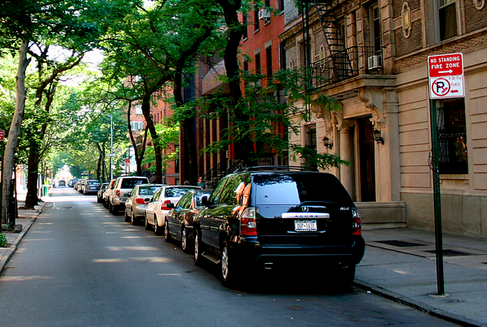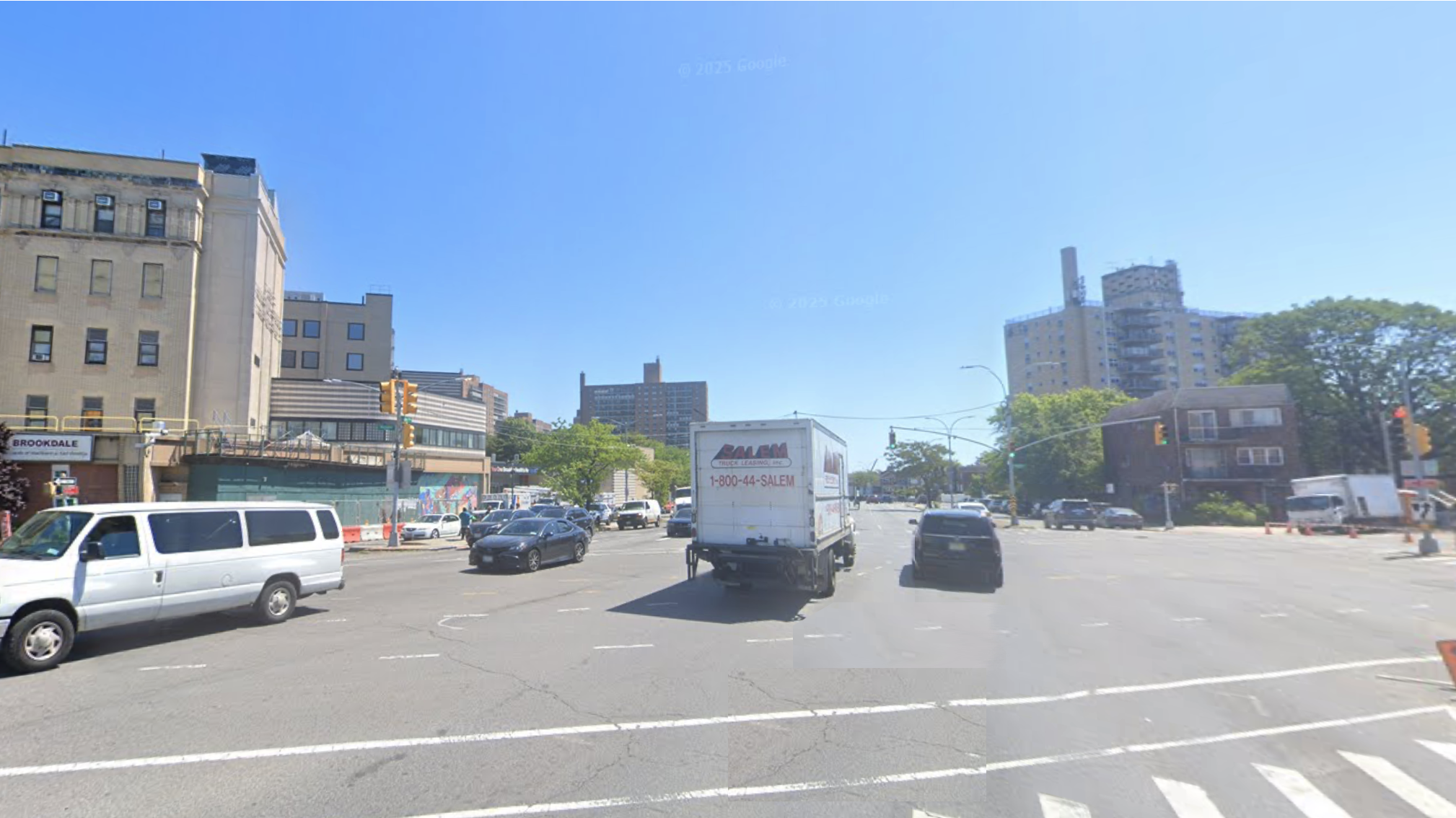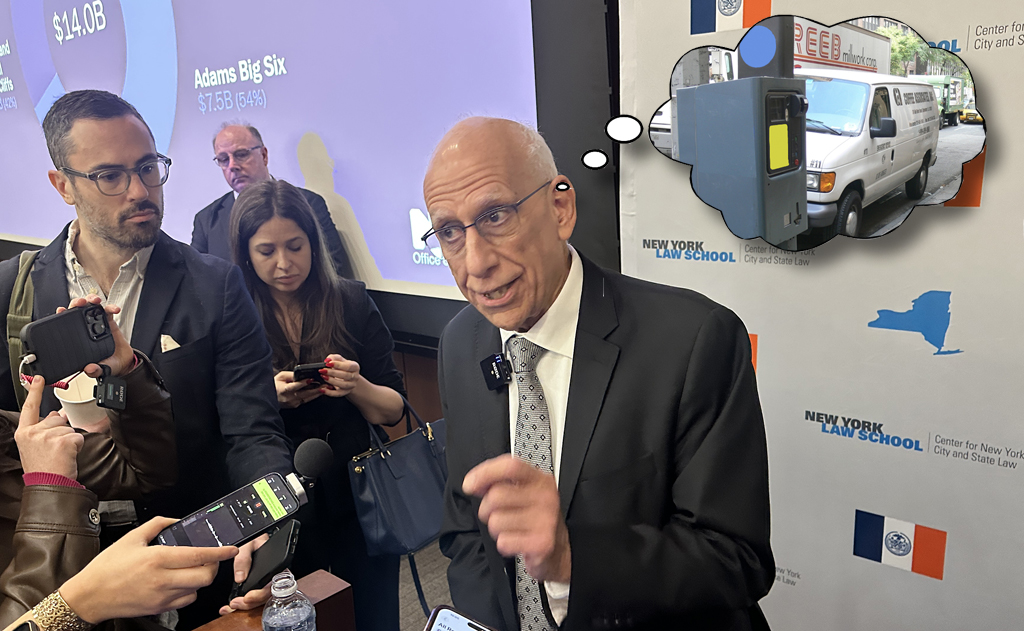If you own a car in New York City and need a place to park, leaving it on the street is a nice bargain. The only "cost" is alternate-side restrictions for street cleaning -- otherwise, all that space is free. It's such a good deal that in outer-borough neighborhoods, most car owners with an off-street space at home still choose to leave their cars at the curb.

New York is one of the few large American cities without residential parking permits. While the city has not put any price on residential curbside parking, New Yorkers themselves are willing to pay, according to a new survey by researchers at NYU and CUNY. More than half of survey respondents who live outside the Manhattan core said they would be willing to pay for an on-street parking permit, if the city offered them.
Conventional wisdom assumes that attaching a price to curbside parking in New York is political suicide. "It doesn't reflect… what people would be willing to pay," said Simon McDonnell, a policy analyst at City University of New York who co-wrote the paper with NYU professor Zhan Guo. "There had been no quantification of that in New York City."
"Curb pricing is not a definite no," Guo said.
The survey, conducted from 2010 to 2011 and released last October, was filled out by 200 respondents in the Bronx, Brooklyn, Queens, and Manhattan above 110th Street offering information about their demographics and transportation routines. It also included this key question:
Many US cities have parking permits that restrict on-street parking to local residents in a neighborhood. As a result, non-residents are only allowed to park for a limited period of time (e.g. two hours) in these permit zones. If New York City offered your household an on-street parking permit for your neighborhood, how much would you be willing to pay for it?
About 53 percent of respondents -- who included car owners as well as car-free New Yorkers -- said that if the city offered permits, they would be willing to pay, giving an average price of $408 per year. Factoring in the 47 percent who said they wouldn't shell out any money for a permit, the average amount respondents said they would pay was $215.
Responses in New York chart a middle ground between studies in other cities. In Belmont, California, a car-dependent suburb in Silicon Valley, residents said in 2004 that they would be willing to pay $40 a year for a residential permit [PDF]. Meanwhile, a 2010 study from Amsterdam, using a different methodology, calculated that residents there would be willing to pay approximately $12.80 a day -- almost $4,000 a year -- for an on-street parking permit [PDF].
In the United States, parking permits are most expensive in San Francisco, which has increased the annual price from $30 in 2006 to $109 today. But even that price is limited by state law to cover only the administrative cost of running the program, and doesn't reflect actual demand.
Guo and McDonnell's study found some interesting variations in what New Yorkers are willing to pay for a parking permit. Car-free respondents weren't any more or less likely to support charging for permits than car owners, though those who used transit at least six times in the seven days before taking the survey did support the idea more than average.
Respondents already paying for off-street parking were more inclined to pay for a permit than those who currently use free off-street or curbside parking. Retired people and respondents with children are more likely than average to support parking permits, though they would pay less for a permit than those who are employed or without kids. Not surprisingly, higher-income respondents supported paying for permits at above-average rates.
Respondents said they spend an average of nine minutes searching for an on-street parking space, and it takes an average of nearly four minutes to walk home from where they parked. Those who spent more time cruising for a space and walking home from where they parked were both more likely to support permits and willing to pay higher-than-average prices for them.
In the survey, Guo and McDonnell did not specify how funds raised by permit sales would be used. They predict that returning the funds to the neighborhoods where they are collected would both increase support for the program and the price respondents are willing to pay for a permit. Guo and McDonald said they are interested in examining this question using a larger sample size in a future study.
Implementing residential parking permits requires action from both City Hall and Albany. While they were included in the congestion pricing plan from 2008 and the City Council pursued them in 2011, DOT studies since then have rejected the concept near stadiums in the Bronx and Brooklyn. Guo noted that the design of a program -- where the boundaries are drawn and how many permits are sold -- "can largely define the success or the failure of the program."
Although the road to implementing permits and pricing is complicated, McDonnell said the study's fundamental result should show that it's possible. "We were testing the idea that there's a non-zero price on street parking," he said. "I think we showed that."





